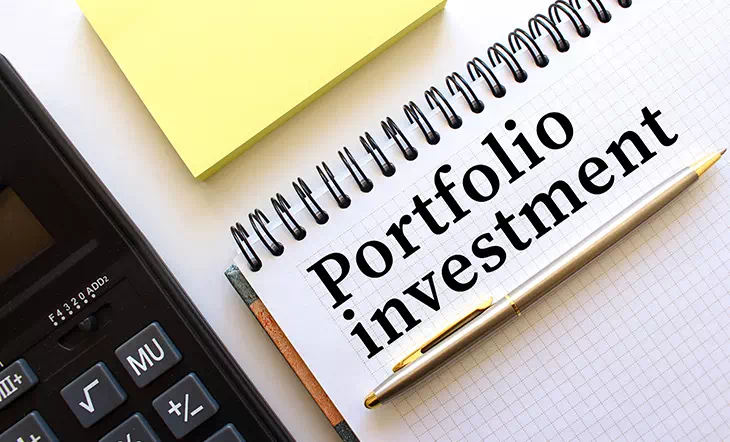Gold has been a valuable and highly coveted commodity for centuries. Unlike other common investment asset classes, you can touch gold, see gold, and keep it in your physical possession. And since gold values tend to move inversely to the stock market, it is often sought after when the markets tank or the value of the US dollar weakens as it is now in the summer of 2020. Gold is also touted as a good way to hedge against inflation. But despite its historical popularity and namesake as being a “safer” investment option in a financial crisis, investing in gold is not without its own risks.
How do you invest in gold?
Commodities investing is a bit different from other types of investing in that the investment is in a physical good. That being the case, there are multiple avenues for investing in gold as a commodity to add to your portfolio that don’t always necessarily mean acquiring the physical product itself.
The first and most obvious way to invest in gold is by purchasing the physical product, either in the form of gold coins, bars, bullions, etc. Those with a fear of the viability of the US or global financial system often choose this route. You can purchase the products you need from a reputable gold dealer, the US Mint, some banks, and gold brokers. Keep in mind you’ll then need a secure place to store the gold, especially if you are looking to get it insured. And should you need to cash in on your investment, you’ll then be tasked with finding an appropriate buyer and selling price.
But if the physical investment sounds like too much of a commitment, there are alternative options in the market. You can either buy shares of stock in companies that produce gold, like mining companies, or buy shares of gold-focused Exchange-traded Funds (ETFs). Keep in mind, when an investor buys a gold-backed ETF, they are essentially buying shares of a trust’s ownership in gold, not the physical gold itself. The ETF investor has no right to physical gold. These are both viable options for individuals looking to use gold as a diversification tool, but don’t necessarily want to purchase, store, and insure the physical commodity itself.
A third alternative involves using commodities futures contractsa to invest. Futures contracts are a binding agreement between two parties wherein both agree to buy or sell certain assets or commodities at a specified time in the future. The gains or losses of a futures contract depend on daily movements in the market, meaning either the buyer or seller could lose out significantly should the price of the commodity deviate too far from the agreed upon price. For example, should a buyer agree to pay x amount of dollars for 100 oz of gold five years from now, but the price of gold decreases, they are still bound to pay the agreed upon sale price and, therefore, would be tied to a losing investment. On the flipside, should the price of gold be higher on the sale date, the buyer will have gotten a bargain on the market value of the gold based on the lower price they agreed to pay in the contract.
Who actually invests in gold? And how?
The bulk of gold’s demand goes toward making jewelry and investment pieces such as coins and bars. [i]Of those investment pieces, the majority is held by gold-focused ETFs, government central banks, and the International Monetary Fundb. In fact, these organizations presently hold almost 20% of the world’s above ground supply.[ii]
Central banks invest in gold to hedge against currency risks—largely for the same reason individual investors might.[iii] Because it is a physical commodity, there is no credit risk in gold, and because gold holds value that is not attached to the dollar, it can work as a hedge against a weakening national currency. The ability to buy and sell gold also helps central banks promote stability in the country’s financial system. Having an asset that appreciates when the dollar depreciates is like having a safety net in place should markets go awry.[iv]
Currently, the largest shareholder of gold in the world is the United States government, holding about 5% of the world’s resource. In recent years, though, German investors have ramped up their gold investing for fear of devaluation of the Euro. In fact, some German investors now own more gold than bonds.
ETFs purchase physical gold that they store in vaults for investors who want a low-cost, convenient way to invest in the precious metal. Jewelers, most of whom reside in India, purchase the product to make and sell jewelry.
Debunking the “Safety” Myth
Gold is a commodity that becomes increasingly popular when the markets tank or the dollar weakens. Nervous investors flee their sinking equity positions and jump into the “safe haven” of gold. Investors see gold as a hedge against both risk and inflation in that the value of gold tends to rise when the markets fall and the price of the dollar weakens.
However, what investors fail to realize is that gold is not inherently valuable. Like other types of investments, its value is subject to change based on supply and demand and investor sentiment. Further, the price of gold often changes quickly, making it a highly volatile investment relative to other investment options. We measure this volatility by the statistical measure of standard deviation, or the degree to which the price of something varies from its average over a given period of time. The lower the standard deviation, the less volatile the investment is said to be. In the last 10 years, the SPDR Gold Trust (GLD) ETF obtained a 3.24% compound annual return, with a 16.05% standard deviation (Source: Morningstar).
By comparison, the exchange traded fund SPY, which tracks the S&P 500, obtained a 13.84% compound annual return with a 13.38% standard deviation, and the iShares MSCI ACWI ETF obtained a 9.35% compound annual return, with a 14.06% standard deviation as of June 30, 2020 (Source: Morningstar). Couple this with gold logging its worst drawdown rate over the past twenty years and ask yourself, which investment sounds safer to you?
Investing in gold simply because its popularly known as a safer investment, doesn’t mean it is the right choice—or even the safer choice—for you. Like any financial asset, gold is subject to supply and demand pressures that cause the price to fluctuate over time. It is not a riskless investment and the decision to add gold to your portfolio should not be made without taking all the possible risks into consideration.
If you are unsure whether investing in gold could be a viable option for you, or if your portfolio is properly diversified to hedge against risk in this market environment, feel free to contact the advisors at William Asset Management to request a second opinion today.
Brian McKinney, CFP® is a Financial Advisor with Williams Asset Management. Williams Asset Management is located at 8850 Columbia 100 Parkway, Suite 204, Columbia, MD 21045. He offers advisory services as Investment Adviser Representatives of Commonwealth Financial Network®, a Registered Investment Adviser. Fixed insurance products and services offered by Williams Asset Management. For additional information about the services of Williams Asset Management, please call (410) 740-0220 or email at Info@WilliamsAsset.com. © Williams Asset Management. For more information about Williams Asset Management, please visit www.WilliamsAssetManagement.com.
Investments
are subject to risk, including the loss of principal. Because investment return
and principal value fluctuate, shares may be worth more or less than their
original value. Some investments are not suitable for all investors, and there
is no guarantee that any investing goal will be met. Past performance is no
guarantee of future results. Talk to your financial advisor before making any
investing decisions.
[i] https://www.investopedia.com/articles/basics/08/invest-in-gold.asp, 16 July 2020
[ii] https://www.investopedia.com/terms/i/imf.asp, 16 July 2020
[iii] https://www.usmoneyreserve.com/blog/why-central-banks-buy-gold/, 16 July 2020
[iv] https://www.usmoneyreserve.com/blog/why-central-banks-buy-gold/, 16 July 2020
a https://www.fool.com/knowledge-center/what-is-a-futures-contract.aspx
b https://www.investopedia.com/terms/i/imf.asp
Other posts from Brain McKinney
How to Have Fun With Your Investment Portfolio
As our clients are well-aware, we take a long-term view with our investment philosophy, focusing on crafting diversified...
Venture Capital: Investing for the Long Term
Over the past decade, there has been an interesting shift in the way venture backed companies are approaching...
2020: Embracing the Silver Linings
As 2020 draws to a close, it’s likely that many of us are harboring a host of mixed...



